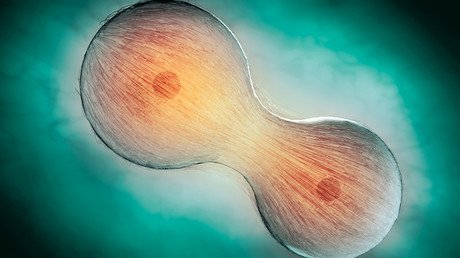Normandy Four agree to ‘stabilize’ eastern Ukraine in Paris communique (VIDEO)
The leaders of France, Germany, Russia and Ukraine have agreed to implement “ceasefire support measures” for eastern Ukraine and “stabilize” the region by the end of the year.
The four leaders held a joint media conference in Paris after the so-called Normandy Format negotiations on the transition to peace in eastern Ukraine.
Prior to the news conference, the leaders said in a joint communique that they agreed to “immediate measures to stabilize the situation in the conflict area in east Ukraine.” Previous attempts by the ‘Normandy Four’ group to simmer down the conflict have achieved mixed results at best.
Among these new additions are the release of prisoners on each side by the end of the year, the creation of three new disengagement areas and the creation of new crossing points, allowing civilians to cross the control line separating Donetsk and Lugansk from the rest of Ukraine.
Here’s the full Normandy Summit communique... it’s not long. pic.twitter.com/0nI0MpaQyy
— Jonah Fisher (@JonahFisherBBC) December 9, 2019
“We need to make sure there are no more hour-long queues, so the thousands of ordinary people who live in this area can easily pass,” Russian President Vladimir Putin told reporters. “Let’s not forget about ordinary people who reside here. All of our arrangements need to improve their lives, and not sometime in the future, but now.”
The group also agreed to implement the ‘Steinmeier Formula’ in Ukrainian legislation. Named after Germany’s former foreign minister, the formula calls for elections to be held in Donetsk and Lugansk, with a view to granting autonomous status to these regions. Kiev, Moscow, and the Organization for Security and Cooperation in Europe (OSCE) agreed to the formula in principle in October.
Heading into the talks, Ukrainian President Volodymyr Zelensky maintained that such elections would only be possible under Ukrainian law, and once foreign military forces withdraw from Donetsk and Lugansk. The leaders’ communique did not touch on Zelensky’s conditions, but the Ukrainian leader said he is “confident” that the issues can be ironed out at future meetings.
Also on rt.com Putin & Zelensky meet: Lasting peace in Ukraine closer, but still far awayThough Ukrainians have by and large supported Zelensky’s outreach to Putin, nationalists there see the Steinmeier Formula as capitulation to Moscow. As such, Zelensky faces the unenviable task of respecting these regions’ desire for autonomy and closer relations with Russia, while also pleasing the Ukrainian nationalists.
“For our part, we are ready to follow all the agreements,” Zelensky said, “but this is a two-way street.” Given that these autonomous regions would share a border with Russia, Zelensky told reporters that himself and Putin have “completely different views” on the transfer of control of this border.
“We do have divergent views,” Putin replied. “We want the Minsk accords to be complied with. Just read what the Minsk accords say. Why do we need to undermine and rewrite the Minsk accords?”
Also on rt.com Russia’s Putin meets Ukraine’s Zelensky for the very 1st time at Paris summitMonday’s meeting was the first face-to-face between Putin and Zelensky, and the newly elected Ukrainian’s first major test on the world stage. In a brief comment to reporters before sitting down to dinner with all three participants, Putin said he was “happy” with how the talks went.
The four Normandy leaders – with both Ukraine and France under different leadership – last met in 2016, with the aim of implementing the previously agreed Minsk Protocols for winding down the conflict. However, little progress has been made since toward this end. Times have changed since 2016 though, and unlike his predecessor, the fiercely anti-Russian Petro Poroshenko, Zelensky has pushed for reconciliation.
Kiev, Moscow and the Organization for Security and Cooperation in Europe agreed this July on a ceasefire in the eastern region of Donbass, and a landmark prisoner exchange in September furthered hopes of peace.
The Normandy leaders agreed to regroup within four months, a dramatically shorter break in negotiations than the three years that passed since the last meeting. The group takes its name from the date and place of its creation: June 6, 2014, when its members came together on the sidelines of the 70th anniversary of the D-Day landings in Normandy.
Think your friends would be interested? Share this story!














